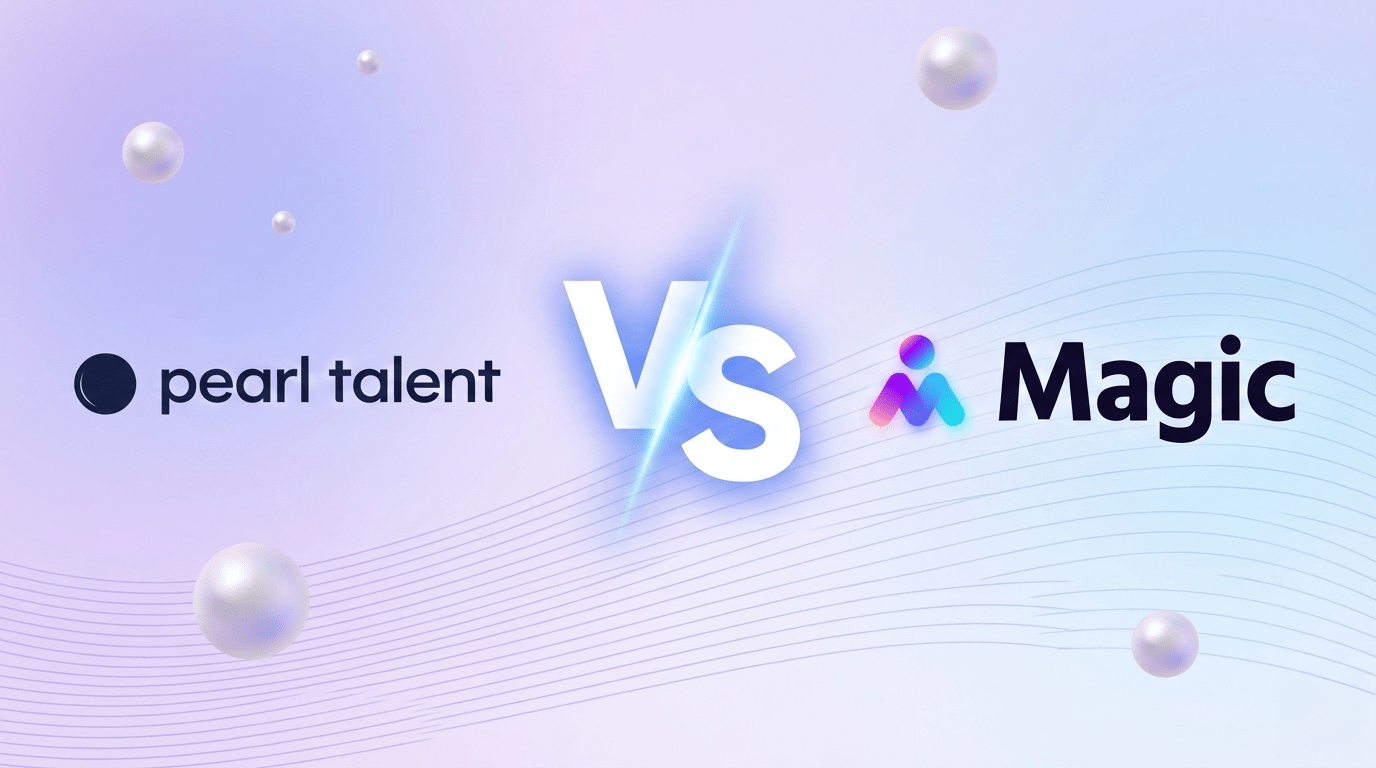Catena is now Pearl Talent! Same mission, new name.
In today's competitive business landscape, companies are increasingly turning to outsourcing as a strategic solution to optimize operations, reduce costs, and access specialized expertise. However, success in outsourcing isn't just about making the decision to delegate—it's about choosing the right outsourcing model that aligns with your specific business needs and objectives.
With numerous outsourcing approaches available, each offering distinct advantages and considerations, selecting the best outsourcing strategy requires a clear understanding of your options. Whether you're a startup looking to scale efficiently or an established enterprise seeking to streamline operations, the type of outsourcing you choose can significantly impact your bottom line and operational effectiveness.
This comprehensive guide examines 9 essential types of outsourcing, providing detailed insights into their benefits, potential challenges, and ideal use cases. By understanding these different models, you'll be equipped to make an informed decision that drives sustainable growth and operational excellence for your organization.
What is Outsourcing?
Outsourcing is the strategic business practice of contracting specific functions, processes, or services to external providers rather than handling them internally. This approach allows companies to leverage specialized expertise, advanced technologies, and cost efficiencies that may not be available or economically viable to develop in-house.
At its core, outsourcing involves transferring responsibility for particular business activities to third-party vendors who possess the necessary skills, resources, and infrastructure to execute these tasks effectively. This can range from simple administrative functions to complex technical operations, depending on your organization's requirements and strategic objectives.
Modern outsourcing has evolved far beyond basic cost reduction. Today's businesses utilize outsourcing to access global talent pools, accelerate time-to-market, and enhance service quality, to name a few. Whether it's customer support, software development, accounting, or manufacturing, outsourcing enables companies to operate more efficiently while maintaining flexibility to adapt to changing economic conditions.
The key to successful outsourcing lies in understanding which functions to outsource, selecting the right service provider, and establishing clear communication channels and performance metrics to ensure alignment with your business goals.
9 Types of Outsourcing To Consider To Increase Business Efficiency
Understanding the landscape of outsourcing options is essential for making strategic decisions that align with your business goals. The following nine outsourcing models represent the most effective approaches used by successful companies across various industries. Each type addresses specific operational needs, from geographic considerations and cost optimization to specialized skill requirements and strategic partnerships. By examining these distinct outsourcing categories, you'll gain clarity on which models best suit your company's current challenges, growth trajectory, and long-term business goals.
1. Professional Outsourcing
Professional outsourcing involves delegating specific knowledge-based tasks or projects to external specialists rather than entire business functions. This model is particularly valuable when your organization needs access to specialized expertise, advanced tools, or professional credentials that would be costly or time-consuming to develop internally.
Unlike comprehensive functional outsourcing, professional outsourcing targets discrete, skill-intensive activities that require specific qualifications or experience. Common examples include tax preparation and financial auditing, legal services and contract review, digital marketing campaigns and SEO optimization, executive recruiting and HR consulting, graphic design and brand development, and IT security assessments and compliance auditing.
This approach is especially effective for project-based work, seasonal demands, or specialized tasks that occur infrequently but require high-level expertise. For instance, a growing company might outsource their annual financial audit to a CPA firm while maintaining internal bookkeeping, or engage a digital marketing agency for a product launch campaign while handling day-to-day social media management in-house.
Pros Of Professional Outsourcing
- Cost-effective expertise access: Obtain high-level professional services without the overhead costs of full-time specialist employees, including benefits, training, and professional development expenses.
- Immediate capability enhancement: Leverage established expertise and proven methodologies without the learning curve associated with building internal capabilities from scratch.
- Strategic resource allocation: Free up internal teams to concentrate on revenue-generating activities and core business functions while ensuring specialized tasks receive expert attention.
- Access to premium tools and technologies: Benefit from professional-grade software, industry databases, and specialized equipment that external providers already possess and maintain.
- Flexible engagement models: Scale professional services up or down based on project requirements, seasonal needs, or business growth phases without long-term employment commitments.
Professional outsourcing becomes even more powerful when you have access to pre-vetted, top-tier talent who understand your business needs from day one. Pearl Talent specializes in connecting businesses with skilled professionals across key areas like finance, marketing, operations, and administrative support, eliminating the time-consuming process of sourcing, screening, and onboarding external specialists.
Our rigorous vetting process ensures that the professionals we match with your organization don't just possess the required technical skills, but also demonstrate strong communication abilities, cultural alignment, and proven track records in their respective fields. This means you can confidently delegate critical projects knowing that Pearl Talent's professionals will integrate seamlessly with your existing workflows and deliver results that meet your standards.
2. Software Development Outsourcing
Software development outsourcing is when you partner with external development teams to handle the design creation, testing, deployment, and ongoing maintenance and support of software applications.
This model has become increasingly sophisticated, extending beyond basic coding tasks to include strategic technology consulting, system integration, cloud migration, and digital transformation initiatives. Companies can outsource entire development projects, specific components like mobile app development or database management, or ongoing maintenance and enhancement of existing software systems.
Modern software development outsourcing often involves collaborative partnerships where external teams integrate closely with internal stakeholders, participating in agile development processes, sprint planning, and continuous delivery cycles. This approach ensures that outsourced development aligns with business objectives while maintaining high standards for code quality, security, and performance.
Pros Of Software Development Outsourcing
- Access to specialized expertise: Leverage specialized knowledge in emerging technologies, programming languages, and development frameworks that may not exist within your internal team,
- Cost savings: Reduce development expenses by up to 40-60% through access to skilled developers in cost-effective regions, while eliminating recruitment, training, and infrastructure investment costs.
- Faster time-to-market: Benefit from dedicated development teams, extended working hours across time zones, and established development processes that can reduce project timelines by 30-50% compared to internal development.
- Global Market Insight: If you plan to launch your software in international markets, having a diverse outsourced team gives you valuable insights into global user preferences and expectations.
3. Business Process Outsourcing (BPO)
BPO, also known as process-specific outsourcing or operational outsourcing, involves handing off specific business processes to external service providers that specialize in those business functions. Some of these processes might not be directly related to your core expertise but are still necessary for smooth operations.
BPO covers different business functions. Some of these include:
- Human resources
- Customer support
- Payroll processing
- Call center operations
- Healthcare billing and coding
- Marketing and digital services
- Logistics and supply chain management
Pros Of Business Process Outsourcing
- Dynamic scalability and resource optimization: Seamlessly adjust operational capacity to match seasonal demands, business growth, or market fluctuations without the overhead costs and time delays associated with internal hiring, training, or workforce reduction.
- Strategic focus enhancement: Redirect valuable internal resources and leadership attention from routine operational tasks to high-impact activities like product development, market expansion, and customer relationship building that directly drive revenue growth.
- Accelerated global market entry: Establish presence in international markets rapidly through BPO providers' existing infrastructure, local expertise, and established operations, eliminating the substantial costs and complexities of setting up foreign offices or subsidiaries.
- Continuous operational availability: Maintain uninterrupted business operations and customer service through strategically distributed BPO teams across multiple time zones, ensuring your business remains responsive and accessible to clients around the clock.
- Built-in compliance expertise: Leverage BPO providers' deep knowledge of industry-specific regulations, data protection laws, and regional compliance requirements, reducing legal risks and ensuring adherence to evolving regulatory standards without internal compliance team expansion.
4. Knowledge Process Outsourcing (KPO)
Knowledge process outsourcing, or KPO, is when you hire a third-party service provider to handle your company’s knowledge-intensive tasks. In KPO, the focus is on outsourcing specialized services that are absolutely critical for your company’s operations and need higher cognitive skills, advanced analytical abilities, and domain knowledge.
Knowledge process outsourcing includes many services, like:
- Data analytics
- Market research
- Financial services
- Technical analysis
- Medical & healthcare
- Business consultancy
- Legal process outsourcing
- Intellectual property (IP) research
Pros Of Knowledge Process Outsourcing
- Access to specialized expertise: Leverage highly qualified professionals with advanced degrees, industry certifications, and deep domain knowledge in areas like financial analysis, legal research, clinical data management, or market intelligence that would be costly and time-consuming to develop internally.
- Strategic Innovation Focus: Redirect your most talented internal resources toward breakthrough innovation, product development, and competitive differentiation while specialized KPO teams handle complex analytical and research-intensive tasks that support but don't drive core business strategy.
- Elimination of ongoing training investments: Avoid substantial costs associated with continuous education, professional certifications, and skill development programs required to maintain cutting-edge expertise in rapidly evolving knowledge domains and specialized methodologies.
- Immediate project deployment capability: Launch sophisticated analytical projects, research initiatives, or knowledge-intensive processes without delay through established KPO teams equipped with proven methodologies, advanced analytical tools, and ready-to-deploy expertise.
- Increased productivity: Maximize internal team efficiency by delegating time-intensive research, data analysis, and complex processing tasks to KPO specialists, enabling your core team to focus exclusively on high-value decision-making, strategic execution, and revenue-generating activities.
5. Project Outsourcing
Project outsourcing is a task-oriented outsourcing type where you’ll assign a specific project to external outsourcing companies rather than handling it in-house. You’ll define the scope, objectives, and requirements of the project and the outsourced services provider completes the project within the agreed-upon timeline and budget.
Pros Of Project Outsourcing
- Reduced management burden: Transfer comprehensive project oversight responsibilities, including timeline management, quality control, resource coordination, and deliverable tracking to experienced external teams, freeing your leadership to focus on strategic business priorities.
- Optimized resource allocation: Reallocate your most valuable internal talent to revenue-generating activities, core business functions, and strategic initiatives while ensuring project objectives are met through dedicated external expertise.
- Comprehensive Solution Integration: Access full-service project capabilities through providers who offer end-to-end solutions, from initial planning and design through implementation and post-project support, eliminating the need to coordinate multiple vendors.
6. Manufacturing Outsourcing
Manufacturing outsourcing, commonly referred to as contract manufacturing or production outsourcing, involves partnering with external manufacturing facilities to handle the physical production of your products rather than maintaining in-house production capabilities. This strategic approach has become the backbone of global supply chains across industries including electronics, automotive, pharmaceuticals, textiles, consumer goods, and medical devices.
Modern manufacturing outsourcing encompasses a comprehensive range of production services and capabilities, including:
- Product design and engineering
- Raw material procurement
- Production and assembly
- Quality assurance and testing
- Packaging and labeling
- Logistics and fulfillment
This integrated approach enables companies to transform from asset-heavy manufacturing operations to lean, market-focused organizations that can respond quickly to demand fluctuations and market opportunities.
Pros Of Manufacturing Outsourcing
- Market expansion opportunities: Leverage manufacturing partners' local market knowledge, established distribution networks, and regional presence to penetrate new geographic markets more effectively while reducing barriers to entry and regulatory complexities.
- Supply chain risk mitigation: Distribute operational risks across multiple manufacturing locations and suppliers, creating resilience against natural disasters, political instability, labor disruptions, or supply chain interruptions that could impact single-source production.
- Economies of scale advantages: Access the cost benefits of large-scale production through established manufacturers' bulk purchasing power, optimized production processes, and shared infrastructure costs that would be unattainable with smaller internal operations.
- Market responsiveness and agility: Rapidly adjust production volumes, modify product specifications, or pivot to new product lines through flexible manufacturing partnerships without the lengthy lead times associated with internal capacity changes or equipment reconfiguration.
7. Onshore Outsourcing
Onshore outsourcing, also known as domestic outsourcing, involves partnering with service providers located within your home country to handle specific business functions, processes, or projects. This approach maintains geographical proximity while still leveraging external expertise and resources, making it an attractive option for companies seeking the benefits of outsourcing without the complexities associated with international partnerships.
As a location-based outsourcing strategy, onshore outsourcing can encompass virtually any business function—from customer service and technical support to software development, accounting, manufacturing, and specialized professional services. This flexibility allows organizations to selectively outsource different operations to domestic providers while maintaining closer oversight, cultural alignment, and simplified communication compared to offshore alternatives.
Pros Of Onshore Outsourcing
- Minimal travel and meeting costs: Face-to-face collaboration requires significantly less time and expense compared to international partnerships.
- Local economic contribution: Supports domestic job creation and contributes to your country's economic growth and development.
- Seamless cultural alignment: Natural understanding of local business practices, communication styles, and regulatory requirements eliminates cultural barriers.
- Synchronized working hours: Operations within the same time zone enable real-time collaboration without scheduling conflicts or delayed responses.
- Enhanced communication efficiency: Geographic proximity and shared language facilitate clearer, more immediate communication and faster issue resolution.
8. Nearshore Outsourcing
Nearshore outsourcing involves partnering with service providers located in nearby or neighboring countries, typically within the same or adjacent time zones. This strategic approach combines the cost advantages of international outsourcing with the operational benefits of geographic proximity and cultural similarity.
For example, a U.S. company might outsource software development to providers in Mexico or Canada, while European businesses often partner with teams in Eastern Europe. This model has gained significant traction as companies seek to balance cost efficiency with seamless collaboration and reduced complexity compared to offshore alternatives.
Pros Of Nearshore Outsourcing
- Regulatory compliance: Navigate familiar or harmonized legal frameworks, trade agreements, and compliance requirements that reduce regulatory complexity.
- Operational Flexibility: Enable immediate collaboration, rapid response to changes, and agile project management through overlapping business hours.
- Strong Cultural compatibility: Benefit from shared cultural values, similar communication styles, and compatible business practices that enhance team integration.
- Expanded talent access: Tap into skilled professional pools with expertise that may be scarce or cost-prohibitive in your domestic market.
9. Offshore Outsourcing
Offshore outsourcing involves delegating business processes, functions, or projects to service providers located in distant countries, often on different continents with significant time zone differences. This global outsourcing model has experienced tremendous growth due to technological advances, improved communication infrastructure, and the increasing availability of skilled professionals worldwide.
Companies typically choose offshore destinations based on factors such as cost advantages, specialized expertise, favorable business environments, and established outsourcing ecosystems. Popular offshore locations include India, the Philippines, Eastern Europe, and Latin America, each offering unique advantages in terms of talent pools, language capabilities, and industry specializations.
Pros Of Offshore Outsourcing
- Scalability: You can easily scale your operations up or down and adjust to changing demands and market conditions.
- Faster project delivery: Offshore outsourcing accelerates project completion through round-the-clock work and the availability of additional resources.
- Distributed risk management: Share operational, financial, and market risks with established offshore providers who absorb fluctuations in demand and provide business continuity during uncertain periods.
- Access to advanced technology: Utilize cutting-edge infrastructure, software platforms, and specialized tools that offshore providers maintain as part of their competitive advantage, eliminating substantial capital investments.
8 Factors To Consider For Choosing The Right Type Of Outsourcing
Selecting the optimal outsourcing approach requires careful evaluation of multiple strategic and operational factors. These eight critical considerations will guide you toward making an informed decision that aligns with your business objectives and ensures successful outsourcing outcomes.
Cost & Budget Analysis
Establish a budget framework that accounts for both direct outsourcing costs and indirect expenses such as management oversight, transition costs, and potential quality issues. Different outsourcing models offer varying cost structures—offshore providers typically offer the lowest labor costs, while onshore partnerships may provide better value through reduced management complexity and faster delivery times.
II. Project Scope & Complexity
Evaluate your project's technical requirements, timeline constraints, and complexity level to determine the most suitable outsourcing model. Simple, well-defined tasks may be ideal for offshore providers, while complex, strategic initiatives often benefit from nearshore or onshore partnerships that offer closer collaboration and deeper business understanding.
Communication & Language Requirements
Prioritize outsourcing partners with strong communication skills in your preferred language and proven ability to understand nuanced business requirements. Clear communication channels and linguistic compatibility are fundamental to project success, particularly for knowledge-intensive or customer-facing functions.
Cultural Compatibility
Assess the cultural alignment between your organization and potential outsourcing partners, including work styles, business practices, and professional expectations. Strong cultural compatibility reduces misunderstandings, improves collaboration efficiency, and enhances long-term partnership success.
Time Zone Considerations
Determine whether time zone differences support or hinder your operational needs. Some businesses benefit from round-the-clock productivity through offshore partnerships, while others require real-time collaboration that favors nearshore or onshore providers with overlapping business hours.
Legal & Regulatory Compliance
Ensure your outsourcing partner maintains robust compliance practices relevant to your industry and geographic requirements. This includes data protection regulations, intellectual property safeguards, contractual obligations, and industry-specific compliance standards that protect your business interests.
Vendor Reputation
Conduct thorough due diligence on potential partners by reviewing client testimonials, case studies, industry certifications, and financial stability. A proven track record in your specific industry or functional area significantly increases the likelihood of successful outcomes and long-term partnership viability.
Alignment With Business Objectives
Your outsourcing partner should be aligned with your business objectives and goals. They need to understand your vision, mission, and the direction you want to take. If you're looking to grow, they should be on board with helping you reach new heights. If you want to improve efficiency, they should be eager to step up their game too. The ideal partner should function as an extension of your team, contributing strategic insights and adapting their services to support your evolving business needs.
Final Thoughts
The outsourcing landscape continues to evolve rapidly, driven by technological advances, global connectivity, and the increasing demand for specialized expertise. Today's successful businesses leverage various outsourcing models strategically. Outsourcing is not just a cost-reduction tool, but has competitive advantages that provide access to world-class talent, accelerate innovation, and enhance operational efficiency.
The key to outsourcing success lies in thoughtful selection based on your specific business requirements, objectives, and operational constraints. No single outsourcing model works for every situation, and the most effective approach often involves a combination of different outsourcing types tailored to various functions within your organization.
Pearl Talent stands ready to transform your executive support operations through our carefully vetted network of top-tier executive assistants. Our EAs become strategic partners who streamline operations, enhance productivity, and enable leadership teams to focus on high-impact business priorities.
Schedule a consultation with our team to discover how our executive assistant services can revolutionize your operational efficiency and drive sustainable business growth.
Frequently Asked Questions
Originally Published
August 16, 2023




.svg)


















